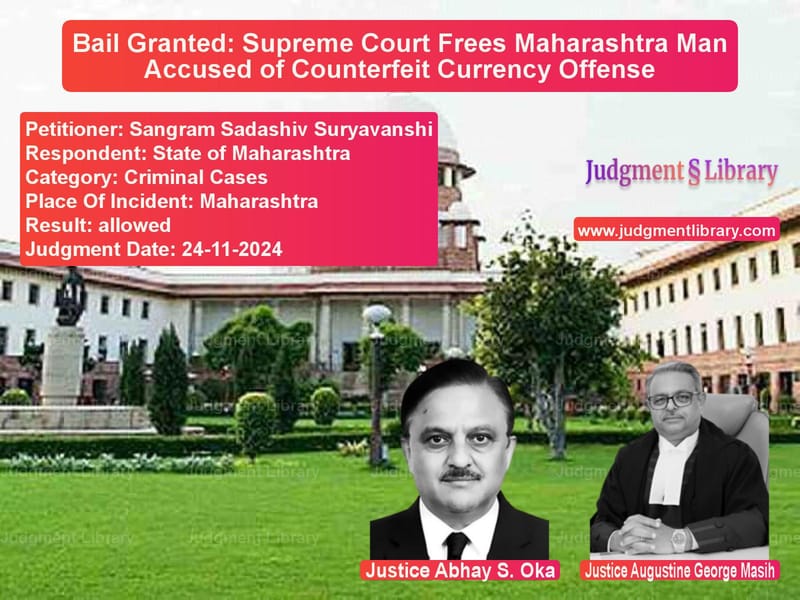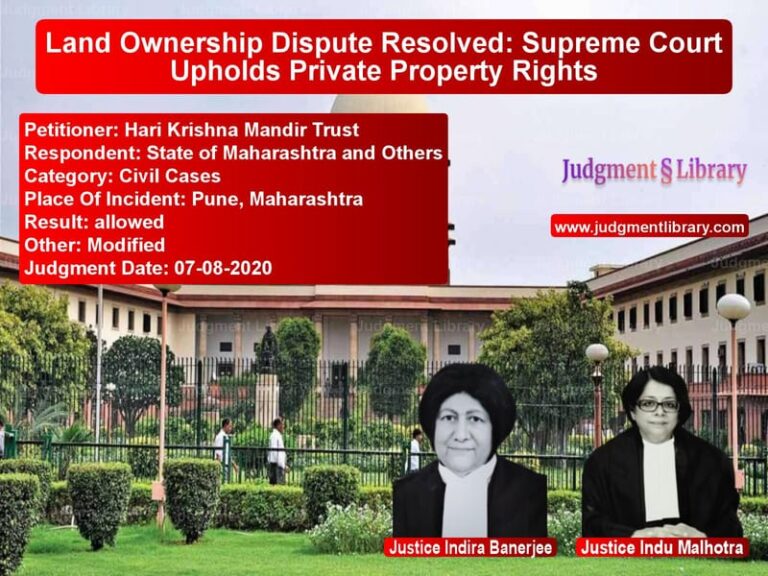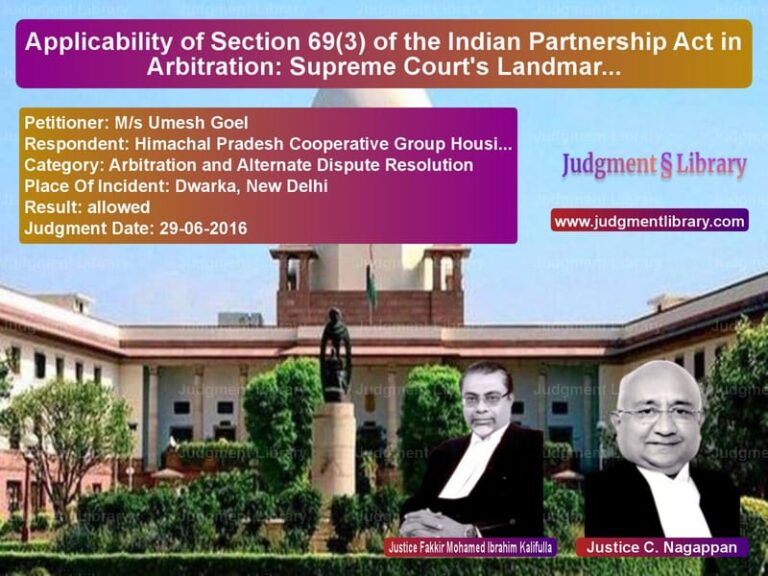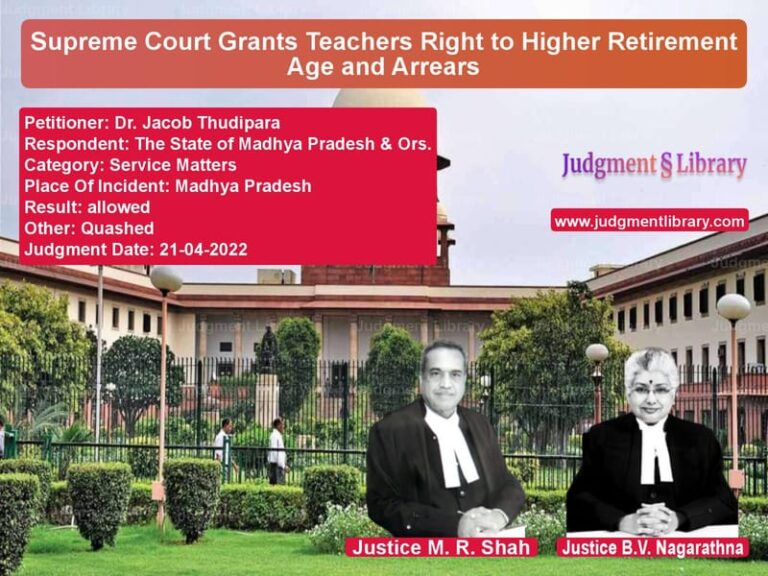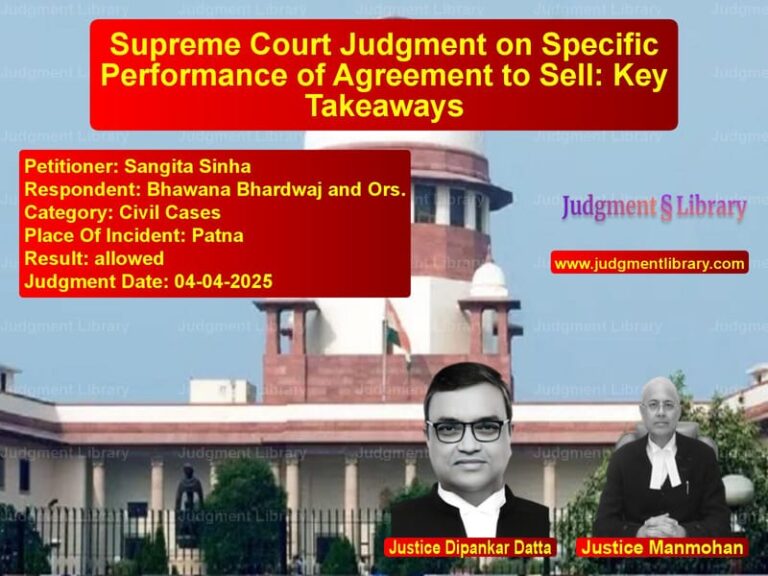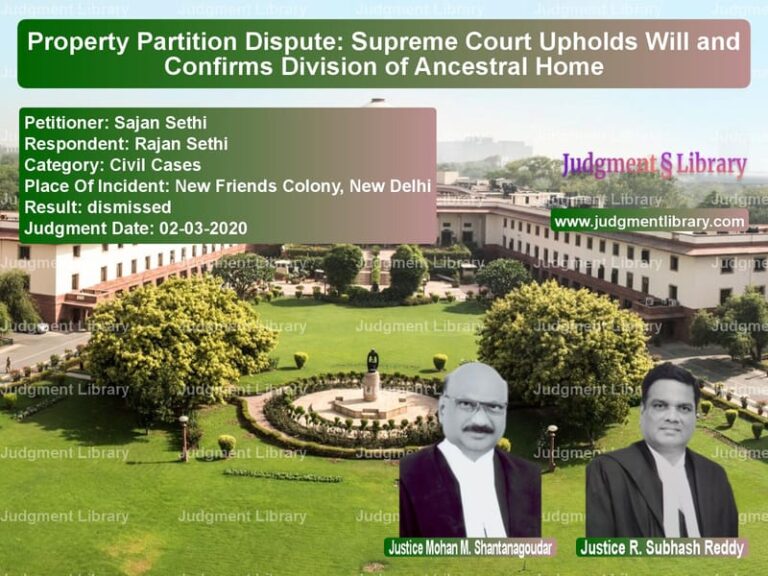Bail Granted: Supreme Court Frees Maharashtra Man Accused of Counterfeit Currency Offense
In a significant ruling, the Supreme Court of India has granted bail to Sangram Sadashiv Suryavanshi, accused under Sections 489A, 489B, and 489C read with Section 34 of the Indian Penal Code (IPC) for allegedly possessing counterfeit currency notes. The Court ruled that prolonged incarceration without trial progress violates fundamental legal principles.
Background of the Case
The case revolves around allegations that the appellant was in possession of six counterfeit currency notes of Rs. 500 each. The police arrested him, and he remained in custody for two and a half years while awaiting trial.
Legal Provisions Involved
- Section 489A IPC: Counterfeiting currency notes or banknotes.
- Section 489B IPC: Using counterfeit currency as genuine.
- Section 489C IPC: Possessing counterfeit currency with knowledge of its illegitimacy.
- Section 34 IPC: Acts done by several persons with common intent.
Arguments of the Parties
Arguments by the Appellant
The appellant, through his legal counsel, argued:
- The case involved only six counterfeit notes, an insignificant quantity for severe charges.
- He had already spent two and a half years in jail without trial progress.
- There was no criminal history or antecedents against him.
- The trial was unlikely to conclude soon, violating his right to a speedy trial.
- Bail is a rule, and jail is an exception unless serious concerns arise.
Arguments by the State
The prosecution countered:
- The counterfeit currency charges were serious offenses threatening economic stability.
- The appellant’s role in the crime needed to be determined through trial.
- Releasing him on bail might allow him to tamper with evidence or flee.
Supreme Court’s Observations
The Supreme Court noted key factors in the case:
- The accused had been in jail for a prolonged period with no significant trial progress.
- There was no prior criminal record indicating habitual involvement in counterfeiting.
- The case involved a small quantity of counterfeit notes, making it disproportionate to keep the accused incarcerated.
- Bail should be granted in accordance with the principle that jail is an exception, not the rule.
Key Judgment Excerpt
The Supreme Court ruled:
“The trial is not likely to conclude in a reasonable time. Therefore, in the facts of the case, the appellant deserves to be enlarged on bail following the well-settled rule that bail is the rule and jail is an exception.”
Directions by the Supreme Court
The Court directed:
- The appellant must be produced before the trial court within one week.
- The trial court must grant bail on appropriate terms and conditions.
- The accused must attend court regularly and cooperate in trial proceedings.
Concerns Over High Courts’ Practices
The Supreme Court also raised concerns over a common trend in High Courts:
- High Courts often set time-bound schedules for trial completion when rejecting bail.
- Such orders adversely affect trial courts as older cases of similar nature remain pending.
- In many cases, High Courts give false hope to litigants by promising quick trial completion.
The Supreme Court cited the Constitution Bench ruling in High Court Bar Association, Allahabad vs. State of Uttar Pradesh & Ors. (2024), which stated:
“Constitutional courts, in the ordinary course, should refrain from fixing a time-bound schedule for the disposal of cases pending before any other courts.”
Impact of the Judgment
This ruling reinforces several legal principles:
1. Bail as a Fundamental Right
The judgment upholds that pre-trial incarceration should be minimized, especially when trials are delayed.
2. Economic Crimes and Proportionality
While counterfeit currency offenses are serious, the Supreme Court emphasized that punishment must be proportionate to the severity of the crime.
3. Judicial Efficiency
The ruling discourages High Courts from setting unrealistic trial deadlines and interfering with lower courts’ case priorities.
Conclusion
The Supreme Court’s ruling in Sangram Sadashiv Suryavanshi vs. State of Maharashtra underscores the importance of fair trial rights and proportionality in pre-trial detention. By granting bail, the Court reaffirmed the principle that individuals should not remain in jail indefinitely without trial progress. This judgment serves as a reminder that courts must strike a balance between public interest and individual rights.
Petitioner Name: Sangram Sadashiv Suryavanshi.Respondent Name: State of Maharashtra.Judgment By: Justice Abhay S. Oka, Justice Augustine George Masih.Place Of Incident: Maharashtra.Judgment Date: 24-11-2024.
Don’t miss out on the full details! Download the complete judgment in PDF format below and gain valuable insights instantly!
Download Judgment: sangram-sadashiv-sur-vs-state-of-maharashtra-supreme-court-of-india-judgment-dated-24-11-2024.pdf
Directly Download Judgment: Directly download this Judgment
See all petitions in Fraud and Forgery
See all petitions in Public Sector Employees
See all petitions in Money Laundering Cases
See all petitions in Judgment by Abhay S. Oka
See all petitions in Judgment by Augustine George Masih
See all petitions in allowed
See all petitions in supreme court of India judgments November 2024
See all petitions in 2024 judgments
See all posts in Criminal Cases Category
See all allowed petitions in Criminal Cases Category
See all Dismissed petitions in Criminal Cases Category
See all partially allowed petitions in Criminal Cases Category

